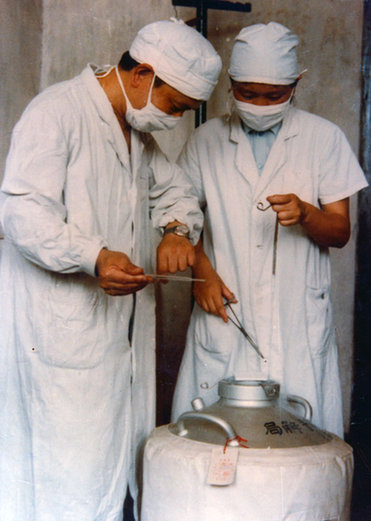Life frozen in time
By Chen Mengwei ( China Daily ) Updated: 2016-02-27 07:40:21 |
|
Lu Guangxiu (right) and her colleague defreeze sperm. [Photo provided to China Daily] |
Tang Wenhao, a specialist in the andrology department of Beijing University Third Hospital, who writes about men's health, says that these days about 80 percent of cancer patients under 50 can live more than five years after their cancer is detected, and at the same time more young men are getting cancer. More and more of this growing group are keen on fathering children, something men of earlier generations could not have contemplated.
"The market is huge," Tang says.
However, to ensure that the full potential of that market is realized Tang, Lu and others have their work cut out in educating not only the general public but the medical profession as well about sperm preservation.
The first hurdle that such an educational campaign faces is that not all doctors who treat cancer realize the importance of recommending sperm insurance to their patients before they lose fertility.
In most cases chemotherapy or radiation therapy eliminates all sperm and leaves a man infertile, so you might think that any experienced oncologist would always recommend to a cancer patient that he deposit his sperm in the nearest bank before starting such treatment.
However, this does not seem to be the case, as attested by directors of sperm banks in Beijing and Guangdong, Hebei, Hunan and Jiangxi provinces.
Zhao Bangrong, director of Hebei's sperm bank, recounts the sobering tale of a research colleague as an illustration of what happens when a patient is ignorant about the role sperm bank preservation can play.
"This guy got leukemia and received a round of chemotherapy and later came to me asking if he could still preserve his sperm. However, our tests showed he had lost it all."
|
|
|
|
|
|
|
|

























 Raymond Zhou:
Raymond Zhou: Pauline D Loh:
Pauline D Loh: Hot Pot
Hot Pot Eco China
Eco China China Dream
China Dream China Face
China Face






